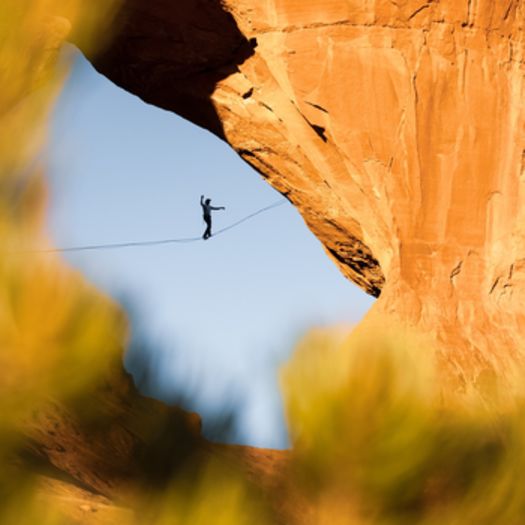One of the best things about RV camping is the freedom it gives you. That said, if you rely on staying only in campgrounds, some of your freedom is taken away and it becomes a lot harder to fly by the seat of your pants. The solution? Boondocking!
In this article, we will take a closer look at boondocking and help you understand what it is, why you should do it, and where to start.
RELATED: Where to Camp - A Guide to Boondocking
What Is Boondocking — And Why Do It?
First, let’s take just a second to chat about what exactly boondocking is. Generally, this term refers to dry camping (or camping without hookups) in a wilderness area. Some people use the word boondocking to refer to other types of dry camping, such as staying in a parking lot overnight, but because the word literally references the term “boonies,” we think it should be reserved for camping trips in more remote areas.
There are plenty of reasons to go boondocking. It’s an excellent way to enjoy spontaneous, reservation-free travel while also escaping the hustle and bustle of everyday life and immersing yourself in nature. It can provide solitary camping experiences in scenic, remote locations. To top it all off, many boondocking locations are free, or much cheaper than a traditional campground, so it can be a great way to travel on a budget.

Making Your Rig Boondocking Ready
Is your rig ready for boondocking? The good news is that anyone with an RV can boondock. That said, there are some things you’ll want to do before you head out in order to ensure you have a safe and comfortable stay.
At a minimum, you’ll need:
- A good boondocking spot (see below for information on how to find them).
- A full freshwater tank.
- Empty wastewater tanks.
- A way to keep your batteries charged (such as a generator or solar panels).
- Food and supplies to last throughout your trip (because boondocking spots can be very far away from grocery stores and services).
- An adventurous spirit.
You may also want:
- Better batteries (we recommend LiFePO4 batteries).
- An inverter.
- A portable wastewater tank.
- A macerator pump.
- A water bladder.
Boondocking Safety
Many people worry about whether boondocking is safe — but as long as you use common sense, boondocking is just as safe as (if not safer than) any other kind of RV camping.
Here are some boondocking safety tips to keep in mind before you head out into the wilderness.
Pack Smart
Don’t be caught without something you really need. Pack emergency items such as a first aid kit, emergency blanket(s), tools, spare tires, extra fuel, paper maps, satellite communicator, etc. You may never use these things, but if you need them, you’ll sure be glad you packed them.
Read Reviews
Staying at a new boondocking spot can be exciting. Be sure to read reviews about any spot you plan to visit before you head out, and look for mentions of ground clearance, overhead clearance, rough dirt roads, etc. If it sounds like your vehicle won’t make it, skip it and find another. There are plenty of spots that will fit the limitations of your rig.
RELATED: 9 Must Know Safety and Travel Tips for RVing With Dogs
Arrive Before Dark
Always, always arrive at your boondocking spot before dark. Because boondocking spots are generally remote and not paved, you never know what you might run into. Cliffs, giant potholes, snakes, and bears are all very real possibilities, and if you can’t see, they all become much more challenging.
Listen To Your Gut
If you arrive at a spot and it just doesn’t feel right, there’s no harm in leaving. Even if you can’t pinpoint what is giving you the creeps, your gut likely knows what it’s talking about, and it’s not worth the risk to stick around.
Know Where You Are (And Share Your Location)
Always know your GPS coordinates in case you need to call 911. It’s also a good idea to share those coordinates with someone you trust and communicate with often. Lastly, be sure you know where the closest emergency room is.
Take Security Precautions
Of course, you’ll want to take all the usual security precautions as well. Some basic ones to keep in mind include:
- Lock up all outside items at night.
- Lock your door and don’t answer it at night.
- Keep keys and pepper spray near your bed.
- Be observant of your surroundings.

How To Find Boondocking Sites
One of the big benefits of boondocking is not having to make advance reservations or deal with overcrowded campgrounds. But how do you actually find your boondocking spots? Here are some places to start:
- Locate your nearest public lands, like the Bureau of Land Management (BLM) land and national forests.
- Use apps and websites like The Dyrt, Campendium, Free Campsites, and iOverlander.
- If you want to try something new and stay on someone’s private property, check out services such as Harvest Hosts or Boondockers Welcome.
RELATED: Boondock Basics: Your Guide to RVing America’s Bureau of Land Management
Is Boondocking Right For You?
We already touted the benefits of boondocking, and we really do think it’s a fantastic option for RVers looking for total freedom or budget travel options. That said, it’s not for everyone. If you’re wondering if boondocking is right for you, keep reading.
You’ll love boondocking if…
- You’re an adventurous traveler who wants to explore off the beaten path with no real plan.
- You’ve made an art out of traveling on a budget.
- You want opportunities to immerse yourself in nature.
- You don’t mind giving up conveniences such as air conditioning and endless water.
Boondocking may not be for you if…
- You need constant temperature control to be comfortable.
- Daily long hot showers are a must-have.
- The idea of spending time far away from grocery stores, restaurants, and other conveniences sounds terrible.
- You like solid plans and can’t cope when something doesn’t go as planned.

As you can see, there are a lot of reasons to go boondocking, and more and more RVers are turning to this form of RV travel in order to curb their wanderlust. Why not give it a try yourself? You might just fall in love!












